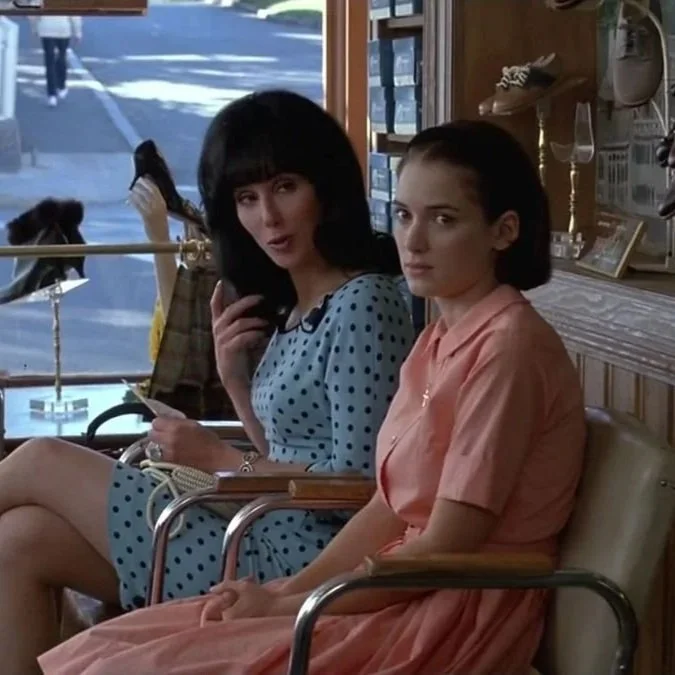There's A Very Specific And Very Obvious Reason For Why I Can't Do It All
by Vanessa Kass
I tried. Like the determined human I am. Like the determined woman I am. Feminism has given me choices. Women continue to push for the examination of gendered roles and the limitations they impose. Women continue to call out the patriarchy and the power differential that is so engrained some people can’t, or won’t, see it. Women continue to call for choice and options and equality. Hell. Yes.
I am thrilled that I have options.
But with these options has come greater responsibility without any reallocation. Because the responsibilities and expectation of men have remained the same. Now (in heterosexual couples), a wife is working outside of the home, making a paycheck, receiving external validation for all the value she can provide outside of mothering, while continuing to mother largely the same way. But the man’s role in family, parenthood, and in society, hasn’t changed. I am talking systemic here. Please don’t come at me if your husband cooks and changes diapers.
So now I am responsible for all the traditional things expected of a man, in addition to all the shit that has been expected of a woman for eons. Which means I am doing the work of two people, and I’m still expected to have equal success and fulfillment in both. Does this sound like a recipe for success to anyone?
But I am no quitter.
I went to college, got a Masters degree in Education and starting teaching. I loved it. I was good at it. I have always been drawn to kids and teaching is a natural skill. So off I went to start my career. Then I got married and had kids. Late, I might add. And to my surprise, I wanted to be home with them. I didn’t want to leave them at daycare. I didn’t want to miss school pick-up or drop-off. I wanted to be able to volunteer in their classrooms and stay with them when they were sick. And I did. In addition to continuing to work outside of the home full time.
“with each sick kid or snow day, my husband just expected me to be home.”
I wanted to help out at home as much as possible, but…it was also expected of me. Implied, even. With each sick kid or snow day, my husband just expected me to be home. We even had conversations about tiers of care. Read: we were both responsible for showing up for our kids before we called a grandparent. But even when we nailed that down, I was still the first call. Always. Without question.
I worked on being a model employee during the day while not being too much of a mother. Taking too many days for sick kids or leaving meetings for personal calls. And at home, I tried to be present for my kids without worrying about the giant list of work tasks that remains unfinished. (Not to mention that the cost of daycare for two kids was 75% of my monthly salary.) I did that for 5 years, feeling inadequate at both.
When I was at work, I was still thinking about managing schedules, playdates, birthday party presents, doctors appointments and anything school-related. While also doing my, you know, job. When I was home, I was doing homework, tubs, changing clothes over, handling meltdowns, cleaning and preparing to do it all again tomorrow. I never completed my work to-do list. I never completed my mother to-do list. Eat, work, come home, work again, sleep, repeat.
I resigned six months after my return from maternity leave with my second son to stay home with our kids. When I made the announcement, my male friend asked me what I was going to do with all my education. Uh, take it with me? I don’t hand in my diploma and my brain when I stay home to take care of my kids. But isn’t that fascinating? We’re not valued for all the work we do as mothers, and we’re questioned if we give up our other work for our families. We’re made to feel less-than. Lazy. Un-feminist.
And that is just the mothering. We haven’t even talked about the wife-ing.
The disparity between me and my husband becomes even clearer when I look at my marriage. A father wants to go out after work for drinks? Just a quick text and he is good to go. No one would even dare question his motives. No one would call him selfish. He just “wants to blow off some steam.” A mother? It’s a color-coded spreadsheet of activities, care providers, phone calls and levels of permission before it’s even a maybe. There’s judgement and implied selfishness; not to mention, having to remind your partner how to parent (because you want to take one night off) takes a toll on a marriage.
“there is a clear imbalance, and it’s landing on the shoulders of the women.”
There is a clear imbalance, and it’s landing on the shoulders of the women – the invisible load. More responsibility, more expectation, less help. We are the first generation who are largely mothering solo (without “a village”), as there are fewer multi-generational homes and close-knit familial communities. Just this past holiday season, I was lamenting how stressed I was - so much to plan, purchase, organize and get together. My husband legitimately looked at me and said he wasn’t stressed at all. No shit. When our son opened the Lego set we got him, my husband asked him who gave it to him. We did. Is that what a stress-free holiday is like? Or, you know, just a regular Tuesday? Must be nice.
Why don’t I just ask my husband to do more? Well, being a constant “nag” doesn’t exactly add sparks to our marriage. And wouldn’t it be nice if he just knew that he should pick the kids up from school, and I didn’t have to be his mother, too? The idea that fathers should share equally in the house and child work is still relatively new. Even young men with strong father figures have few role models of modern, equal fatherhood that can guide their parenting tactics; their messages of fatherhood have always been about providing financially. That is what a good father does. Full stop.
And then of course, there’s the problem of the perception of work inside the home. This has always been considered "women's work," and therefore, of less value. Men have not been taught to take on the work at home— they haven’t been taught that this doesn’t make them less of a man.
And this isn’t just about time and schedules and frustration. This is also about economics.
While I loved teaching, it’s not a lucrative career. The rewards are sweeter and more long lasting, but the salary inhibits choice. As a new teacher, I worked full-time over the summer. No summers off here. When I went to grad school to further my education, my loans were deferred but my salary was more than halved. Then there was a wedding and a child. Thirteen months after his birth, I took a job at the State Department of Education. It was a union-protected, salaried position that was almost double my teaching salary. While there, I made $3,000 a month. Daycare was $2,400 a month. Add in graduate loans and there was less than $150 left for bills. Challenging, but I pinched pennies and made it work. But once we moved from two kids to three, working outside of the home really became an economic impossibility. With the cost of childcare and summer camp, working actually became cost prohibitive. It was cheaper for me to stay home.
“i am tasked with doing more, without any financial benefits.”
So I am tasked with doing more, but without any added financial benefits; I lose the potential to bring in income if I stay home, and I’m not compensated for the work I do there. But my work suffers when I am still the one largely responsible for home and childcare. I am supposed to excel in the workplace and at home. Pinteresting birthday parties and coordinating holiday cards while happily showing up to work and meeting my deadlines. All with a smile.
Now, I am not saying that I want to be Mrs. Cleaver. Nor am I saying I want to be Roseanne (the first one. Not the reboot.) But my point is this; how free are our choices really? When we’re backed into inhabiting roles like devoted mother OR workaholic OR frazzled working mother who feels like she can’t do anything right, how are we supposed to choose?
That isn’t to say I don’t appreciate the choices I have. Choices are freedom. But our choices don’t exist in a vacuum. We don’t make them alone; they’re influenced by societal pressures and our partners and upbringing and finances. Women cannot reap the benefits of feminism and equality if men don’t as well. If we want women to “have it all,” we need to provide economic opportunities and the kind of support that allows for a true choice, a shift in the expectations of men, and success for all of us.
Until then, I can’t do it all. I just can’t.
Vanessa Kass is a writer, teacher and mindset mentor. She lives in Connecticut with her three children, husband, and menagerie of animals. You can find more of her articles here.
















